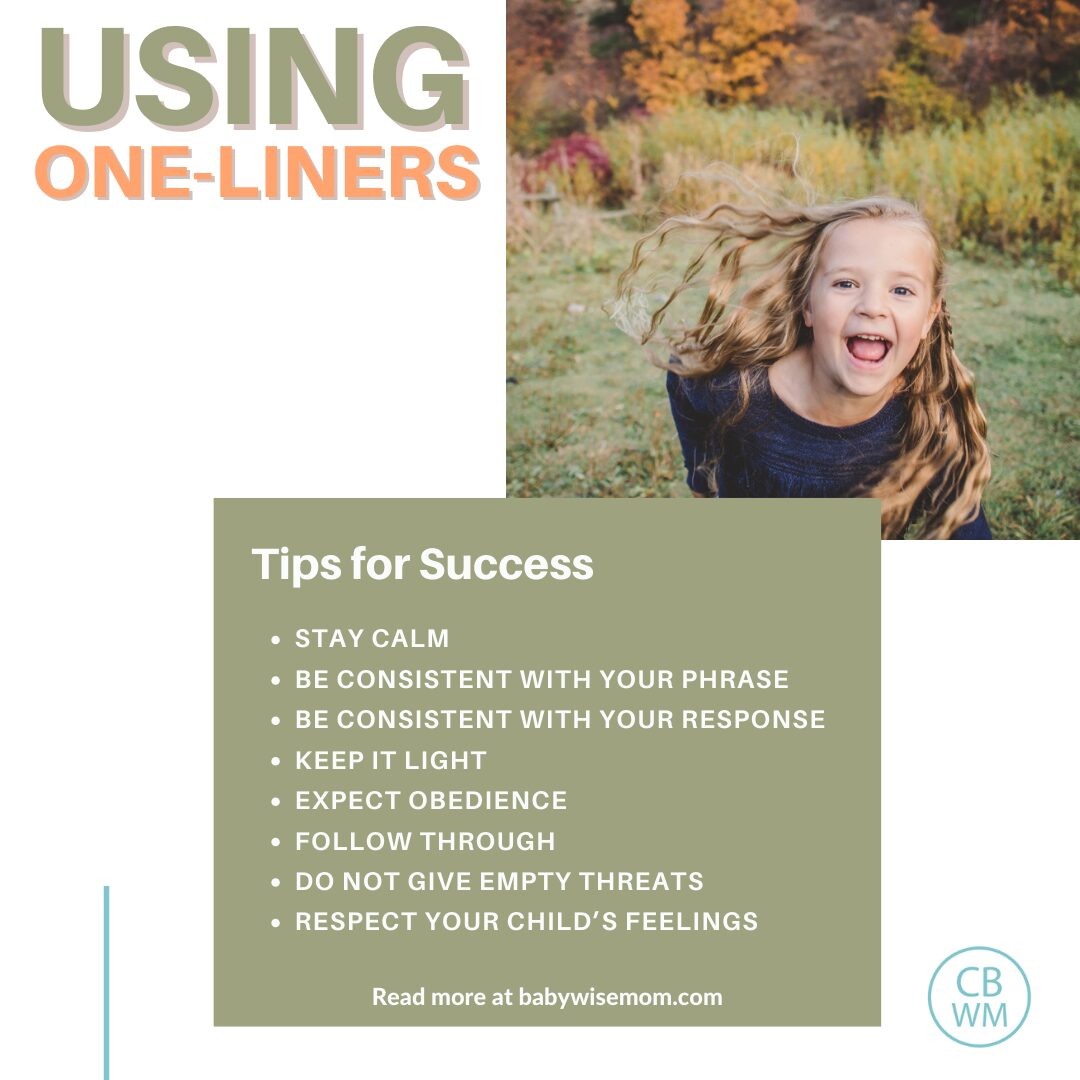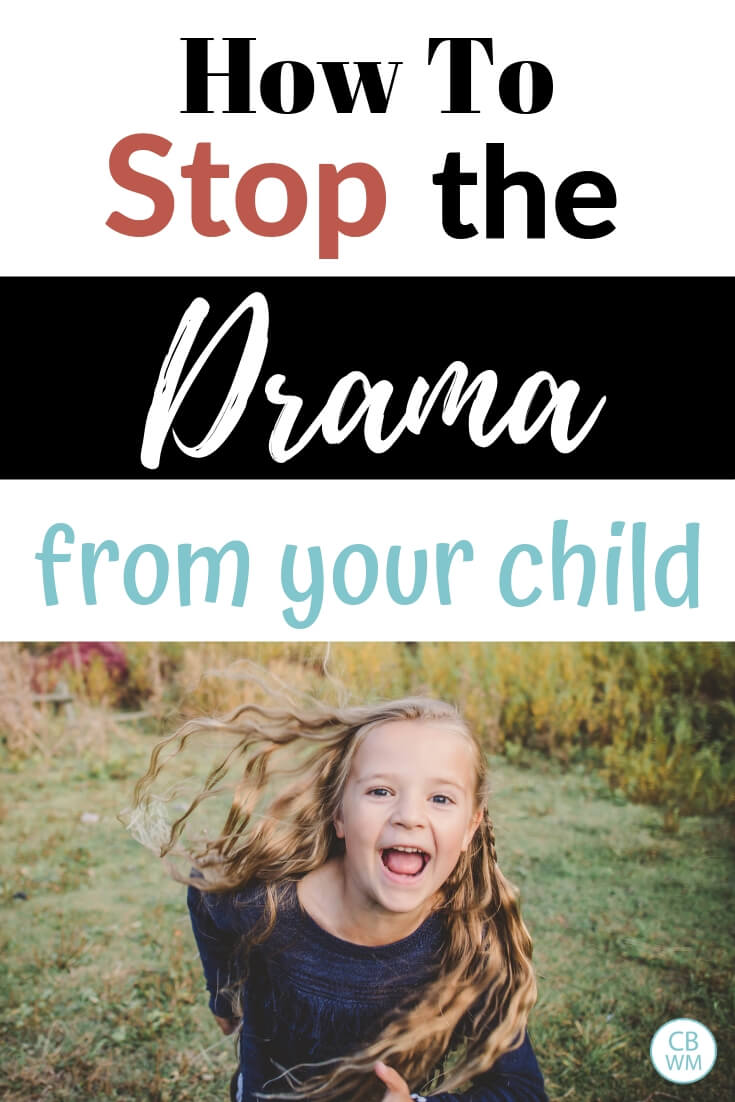How to respond when your child is dramatic and will not calm down. Be prepared with a response so you can remain calm and avoid yelling at your child.

I am not, by nature, a dramatic person. I am logical.
I always thought I would be a mom of just boys because I would be no good at dealing with drama. My first child was a boy. Then I lost a baby boy. Then I had a girl. Surprise! Two more girls followed.
When Kaitlyn, my oldest daughter, turned four, the drama really kicked in. She was a very emotional four year old. A quick survey among mom friends told me emotional four year olds are very normal.
Read: How to Respond to Your Emotional Preschooler
Age five hit and she snapped out of the drama. I was relieved and very nervous about hitting two more girls and the emotions.
McKenna, my second child, was not an emotional four year old. Whew! Sweet relief!
Brinley, my fourth child, was very emotional as a four year old. It took me by surprise because she is a very logical person. She was as emotional as a four year old. I really looked forward to age five when she would snap out of it.
Age five came and went. No snap. She did improve slowly, but it was not a snap.
Today, as a six year old, Brinley still has dramatic moments. While it is not the same level as it was during age four, there is still drama and jumping to dramatic conclusions. Phrases like, “So I can never wear this dress again!” when told the dress didn’t work for that day are not uncommon.

Post Contents
How To Stop Drama from Your Child
Recently we had a family get together on a Sunday. Toward the end of the evening, Brinley had a dramatic moment. I told her,
“Brinley, drama is leaving the room. You can either let it go or go with it.”
I mean, every once in a while you hit gold. This was one of those moments. This was a golden phrase I would treasure, hold on to, and use.
She paused and thought about it. She understood what I was saying.
The best part is my dad was there and started to sing, “Let it go! Let it go!”
Since that day, I have been able to use it a few times and it works really well to diffuse her and stop the drama.
It is brilliant! I have loved using it and the results have been wonderful. I shared it in my Instagram stories and people messaged me all excited about it.
Read: 7 Phrases That Help You Avoid Losing Your Temper as a Parent
Who does this phrase work for?
This phrase will work best on older children who can understand what you mean by this phrase. It might not work very well with a four year old or younger. It could be useful if you demonstrate what that phrase means…if you are dramatic, you will leave the room.

Tips for Using this Discipline Phrase
Whenever you use a discipline phrase, make sure you stay calm with it. A big point of the discipline phrase is to give you something to say that is consistent. Every time your child does something they shouldn’t, you respond in a certain way. Your child knows what the expectation is in association with that phrase and knows not to push it further.
So stay calm.
Also, keep it light. I love that my dad was there to sing “Let It Go.” When someone is being dramatic, if you can avoid being dramatic yourself, it helps a whole lot.
Make sure your child understands what you mean. If your child is old enough, he or she will understand. A younger child might not understand until you say, “Oh. Looks like you want to go with the drama. Go ahead and take it to your room until you are done with it.”
You also want to be consistent and always follow through. Do not tell your child this phrase and then let her sit and continue the dramatics without actually sending the drama out of the room.
Respecting the Feelings of Your Child
You do want to respect the feelings of your child. Drama is usually just big feelings coming out in a way you don’t want them coming out. You absolutely want to be sensitive to your child’s feelings and emotions. You can read some great tips about that balance here in the post How To Help Your Child Work Through Emotions.
Your child can learn to express feelings and emotions without melting into a puddle of drama. Your child can express disappointment over it being bedtime without crying about it.
Conclusion
I love finding little phrases to have a ready response to various situations. I hope this one will help you the next time you have some drama come your way. Everyone can just let it go.
Related Post:

